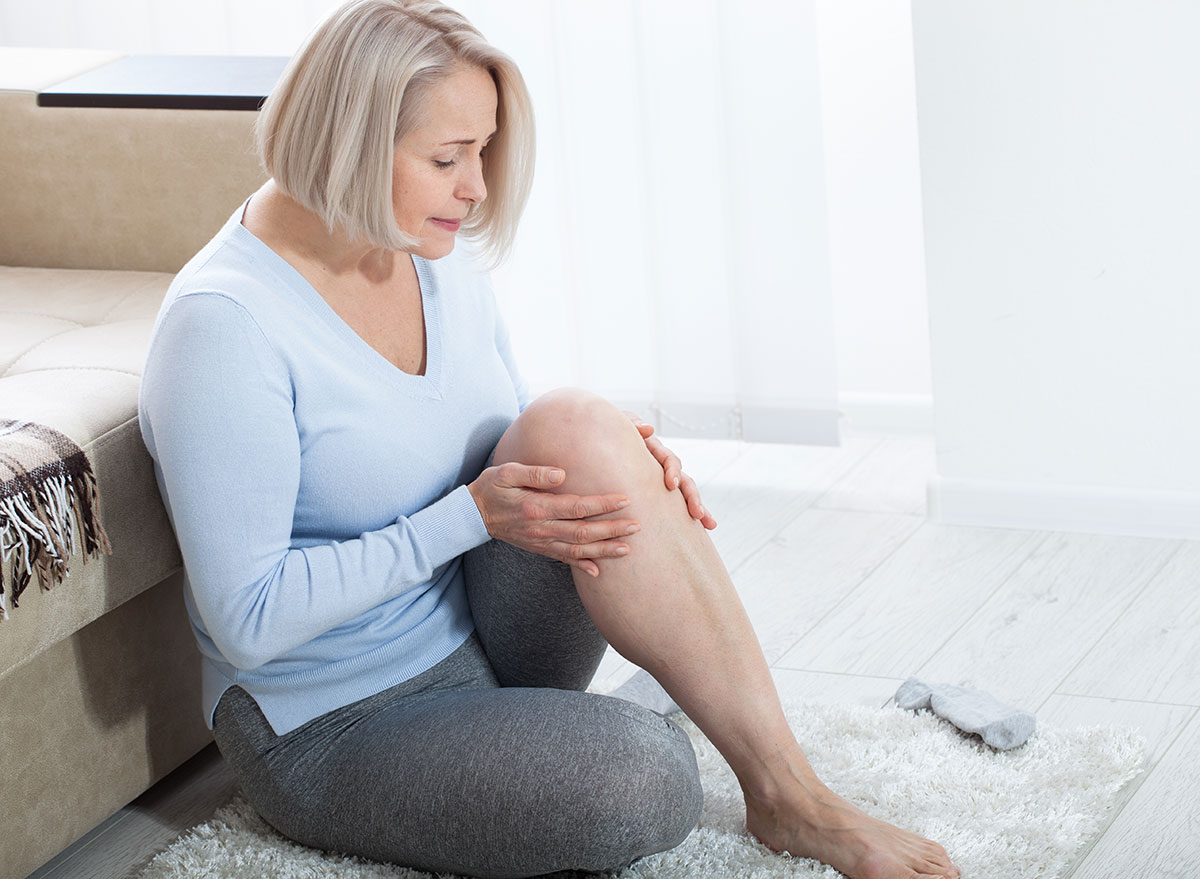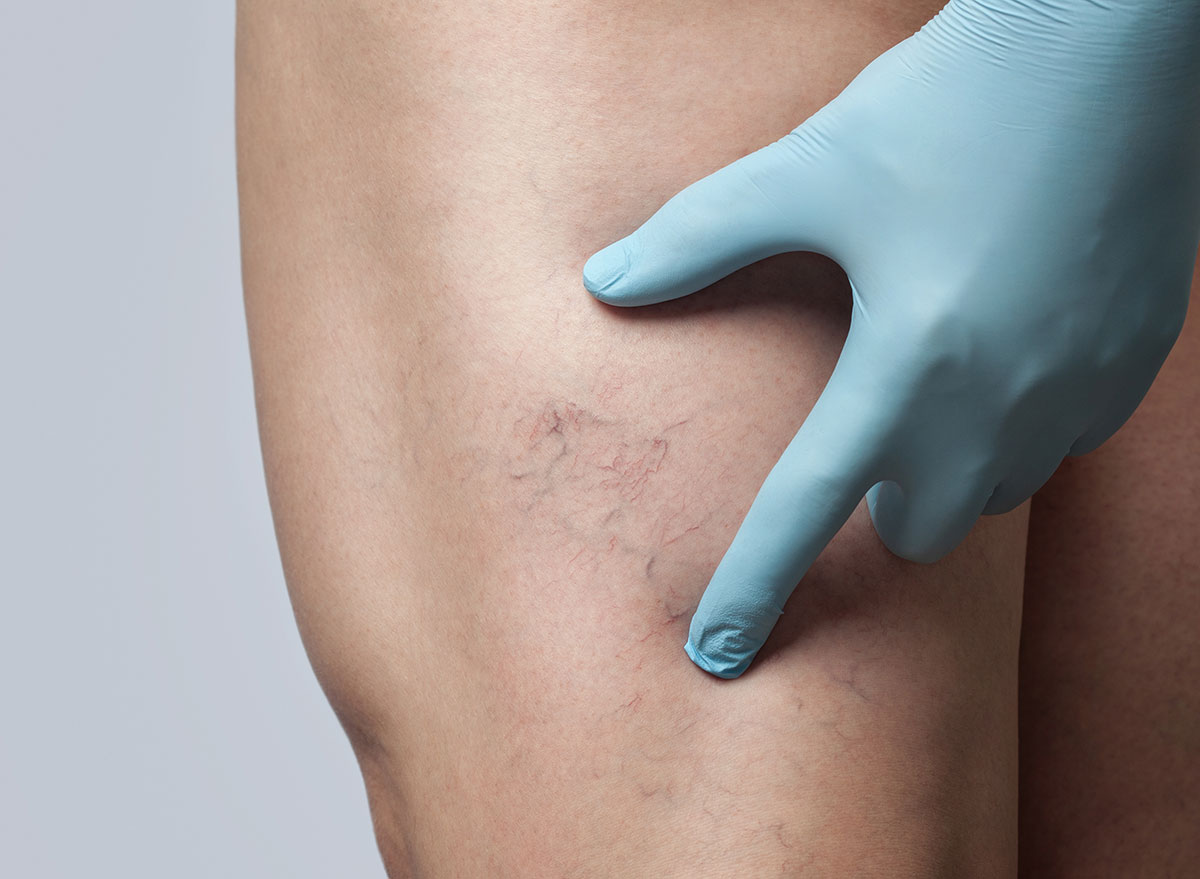What Happens to Your Body When You Don’t Move All Day

To keep the coronavirus from spreading further, social-distancing guidelines were enforced and non-essential employees were asked to work from home. This changed our day-to-day lives drastically—we’ve said goodbye to commuting and hello to wearing sweatpants all day long. But living a sedentary life for long periods of time can cause damage to your physical and mental health. Yes, working from home may make focusing on your work easier (there aren’t any office distractions), but many of us may find ourselves losing track of time. Before we know it, we’ve been sitting in the same chair, in the same position, for hours on end. Here are some of the ways that a lack of physical activity may be damaging your overall health.
It May Contribute to Life-Threatening Conditions

When you are working intently and typing away at your desk, it doesn’t feel like anything bad is happening to your body. But sitting all day has been linked to development of several diseases, “including diabetes, cardiovascular disease, blood clots, metabolic syndrome, and even death,” according to Hannah Daugherty, CPT-NASM and fitness expert, who serves on the advisory board for Fitter Living. Not moving can lead to poor blood circulation and if you aren’t doing much physical exercise, “it’s linked to increased blood pressure and unhealthy cholesterol levels,” says Monica Straith, ACE Certified Personal Trainer and Fitness Lead at AlgaeCal. This can, in turn, increase the risk of heart diseases.
Fix it: Make sure you set aside some time to move on a daily basis—even housework or walking can have great benefits.
It May Increase the Risk of Osteoporosis

The saying “use it or lose it” is very real. If you are sitting all day and not using your important muscles, they can become weak and stiff over time. “Weak muscles can lead to more fragile bones, which increases the risk of falls and fractures. In fact, the less active you are, the higher your risk of osteoporosis,” says Straith.
Fix it: Take a short break during work hours to do a micro workout (or two). Micro workouts are 10-minute sweat sessions with one minute of high-intensity workouts. Research has suggested that they can improve cardiovascular health and be just as effective as a 45-minute session.
It May Increase the Risk of Thrombophlebitis

If you are working from home, you are more likely to spend most of your time sitting. Which can lead to the formation of thrombophlebitis—blood clots in leg veins and inflammation of the surrounding tissue. If you are sitting for long periods of time, “it increases the risk of your blood pooling in the leg veins which can form blood clots. Blood clots that form in the deep veins are serious as they can travel to the heart and lungs (deep venous thrombosis). Blood clots that form in the surface veins, are called superficial thrombophlebitis,” says Dr. Nisha Bunke, MD, FACPh, RPhS, venous disease specialist at La Jolla Vein Care.
Fix it: Using a standing desk for a few hours a day can go a long way in preserving the health of your veins.
It May Cause Chronic Pain

Sitting in a position for too long can be really painful for your body. The problem is that soft tissues such as the muscles, tendons, and fascia will adapt to this and cause an imbalance. “The muscles that were in an elongated position will become used to this and want to stay elongated. The muscles that were in a shortened position will become used to this and will want to remain shortened. As a result, your body essentially becomes dysfunctional,” says Dr. Alex Tauberg, chiropractor and owner of Chiropractor Pittsburgh. This can lead to poor posture and reduced range of motion that can lead to chronic pain in areas like your neck, shoulder, and back.
Fix it: Dr. Tauberg recommends the 20/20/20 rule. You get up every 20 minutes and walk at least 20 feet for at least 20 seconds. It helps your body stay active and pain free.
READ MORE: Click here for all of our latest coronavirus coverage.
It May Compromise the Immune System

Working from home can reduce your chances of getting the coronavirus, but if you are not moving your body all day it can lower your immune system. “Different studies reveal that sitting for as little as 30 minutes can start to affect the lymphatic system. The body needs to move for the lymph system to function, and the lymphatic system is responsible for our immune system,” says Lara Heimann, physical therapist and yoga pioneer for LYT Yoga. You are putting yourself at risk for a cold.
Fix it: Take a brisk walk for a few minutes, even if just up and down your block or backyard. As long as your body is active, you’re already doing a lot of good for your body.
Sitting down or not moving at all may seem harmless but it can cause lasting effects to your body. It can increase your chances of heart diseases and weaken your bones and muscles that can lead to other conditions. Most online meeting platforms are mobile-friendly, next time you have a Zoom meeting, don’t be afraid to throw on your headphones and go for a walk during your meeting!








